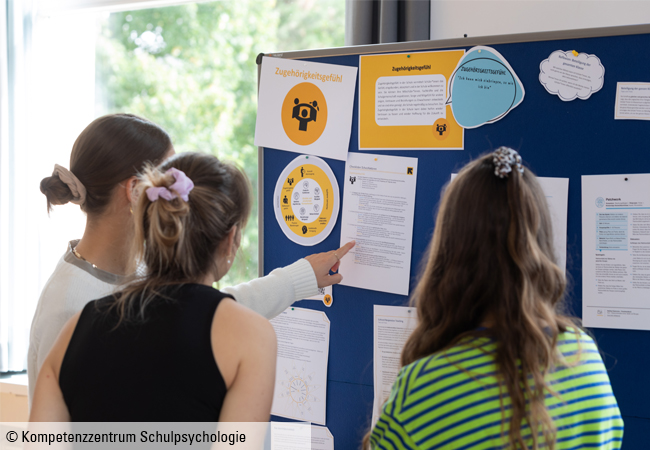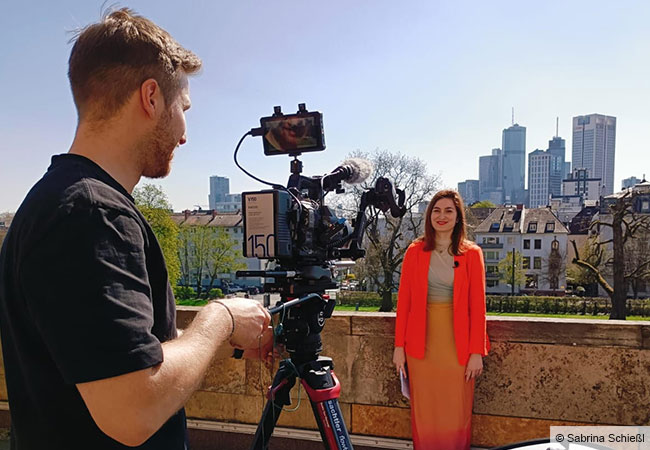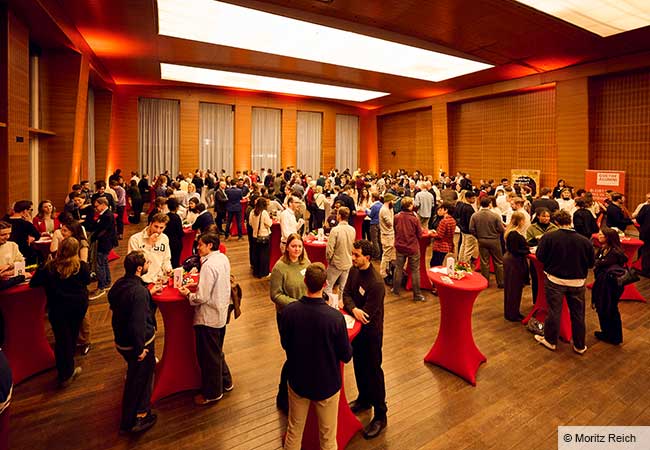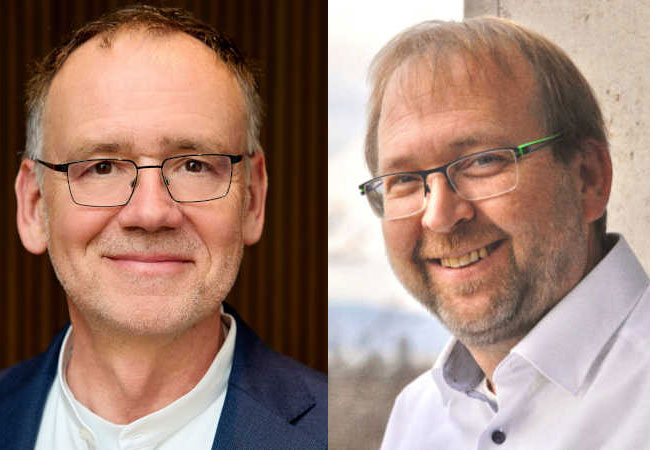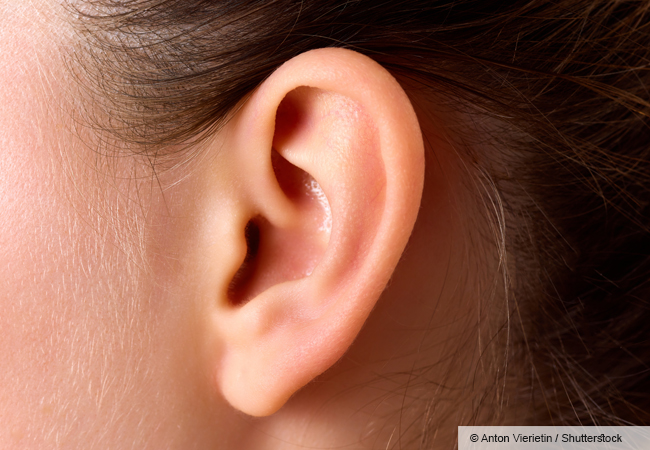In view of the current influx of refugees from Ukraine, Goethe University’s Psychosocial Counselling Center for Refugees, headed by Professor Ulrich Stangier, is looking at the psychological consequences of migration and flight in the context of the Ukraine crisis. Thanks to the support of the Friends and Benefactors of Goethe University and the Polytechnic Society, and in cooperation with the City of Frankfurt, it has been possible to tailor the counselling center’s services to heightened demand and to the specific needs of Ukrainian refugees. Together with Ukrainian colleagues on the ground, the center also continues to offer workshops on how to handle the psychological consequences of war.
Since the end of February 2022, over one million people have fled to Germany because of the war in Ukraine. Displacements in recent years have shown that refugees are in need of psychosocial support. In 2015, the Psychosocial Counselling Center for Refugees at the Center for Psychotherapy began treating refugees exhibiting recurring and sudden feelings of anxiety, sadness or severe mood swings, difficulty in concentrating, insomnia, pain and other physical symptoms triggered by stressful experiences caused by war, flight and the loss of loved ones. Since the beginning of the war in Ukraine, the counsellors have noticed a growing need for primary psychosocial care among Ukrainian refugees. In response to this, they proactively set up a hotline in their native language at the counselling center at short notice. Anna Dudka, who supplied initial information in Ukrainian, reports that the center already received the first requests for counselling in the first few weeks and that there was a considerable demand for advice and information on how to preserve mental health: “Many Ukrainian refugees have a lot of resources and are thinking about the consequences of the war on their mental health and possibilities to influence it through their own preventive measures.” The City of Frankfurt also became aware of the center’s offer, and together they explored possibilities for additional services. The outcome: In June, the counselling center established another psychosocial consultation service, made available on the premises of the Ukrainian Coordination Centre (UCC) at the Office for Multicultural Affairs. “In keeping with a welcoming culture, Dr. Nargess Eskandari-Grünberg, Mayor of the City of Frankfurt, aims to offer as many services as possible for refugees in one place in stadtRAUMfrankfurt House at the Office for Multicultural Affairs,” says Anica Nicolai, the coordinator at the Psychosocial Counselling Center for Refugees responsible for “Ukraine”. “As part of this approach of bringing together offers from all areas of life in one place, our psychosocial care offer has been very well received.”
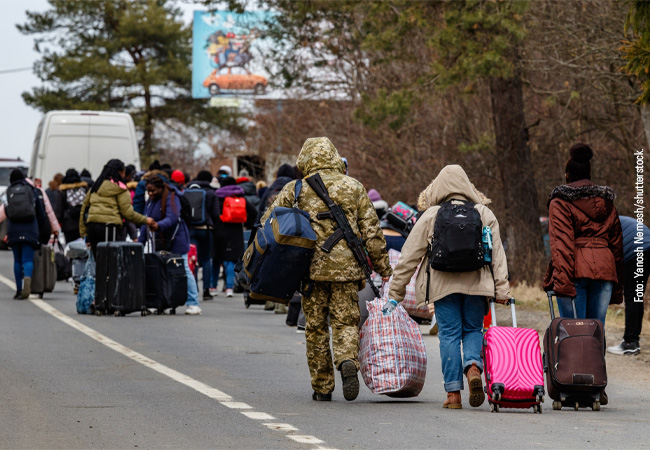
When counselling refugees, how to deal with the new living circumstances plays a major and primary role. “It is mostly women who come to us for counselling who now have to raise their children and make a living alone in a new country, while they are deeply worried at the same time about their partner and family back home,” Nicolai reports. She adds that in terms of their problems and anxieties, this group of refugees differs from those of other countries, as they often also feel a strong desire to return home as quickly as possible. The counsellors address this issue systematically, with the aim of finding a way to handle the situation as long as the women and their children are in Germany and building a temporary life here for themselves. Anna Dudka confirms that one of the main issues is that life seems to have ground to a halt due to the uncertainties associated with the war. There is particular concern about the mental health of the children and their ongoing education. Due to this special situation, the Psychosocial Counselling Center for Refugees has also explored further ways to support the refugees from Ukraine and, as a result, meanwhile has extended its portfolio of counselling services to children and adolescents. In addition, existing group therapy offers have been translated into Ukrainian and customized accordingly.
Initial aid in Ukraine, too
In August of this year, another area emerged where the psychologists from the Psychosocial Counselling Center for Refugees in Frankfurt were able to contribute. Professor Stangier had received a request from colleagues working in psychology, sociology and other disciplines, who asked for help in recognizing post-traumatic stress reactions and dealing with them on the ground. This led to a sharing of ideas about how experience gained in Frankfurt can be used in “psychological first aid” on site. The team succeeded in recruiting Dr. Jennifer Hillebrecht, a psychologist and psychotherapist who had already acquired experience in relation to mental health in crisis situations with “Doctors Without Borders” in Burundi as well as through her work with female Yazidi refugees from Iraq, for a series of workshops with their Ukrainian colleagues. The workshops fostered an exchange of experience, and evidence-based strategies for dealing with traumatic experiences were developed. “It was possible, against participants’ different backgrounds, to discuss the groundwork for dealing with persistent and repeated traumatization, which is a special feature of our Ukrainian colleagues’ situation. At the Psychosocial Counselling Center for Refugees, we are working primarily with people who are in safety here in Germany, which makes it important to take the special circumstances on the ground into consideration,” adds Dudka. The aim is for the partnership to facilitate further exchange and opportunities for additional workshops in the future.
Psychosocial Counselling Center for Refugees at Goethe University’s Center for Psychotherapy
Email: PBF@psych.uni-frankfurt.de
Tel: +49 (0)69 79825366
www.bit.ly/PBF-psych-uni-frankfurt
Hotline for Ukrainian refugees:
Tuesdays: 09.30 – 11.30
Wednesdays: 14.00 – 15.00
Thursdays: 10.00 – 12:00




